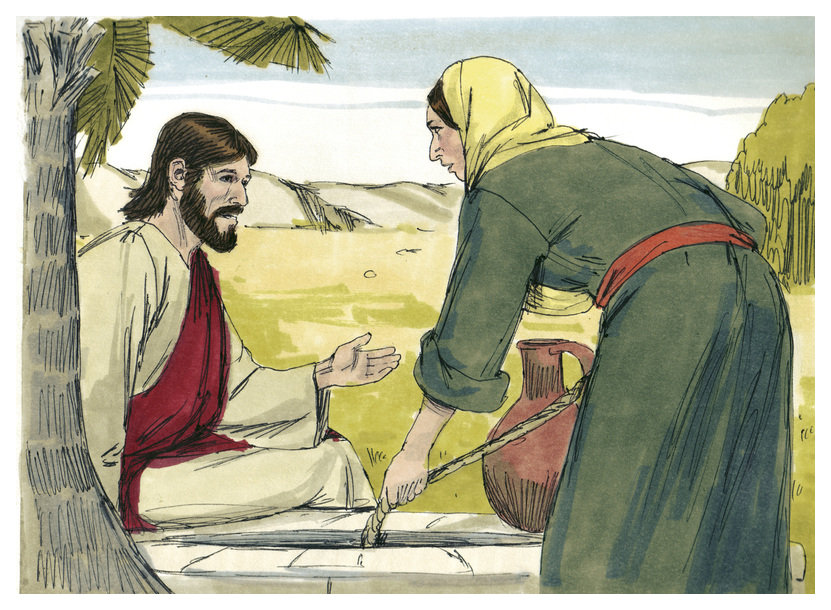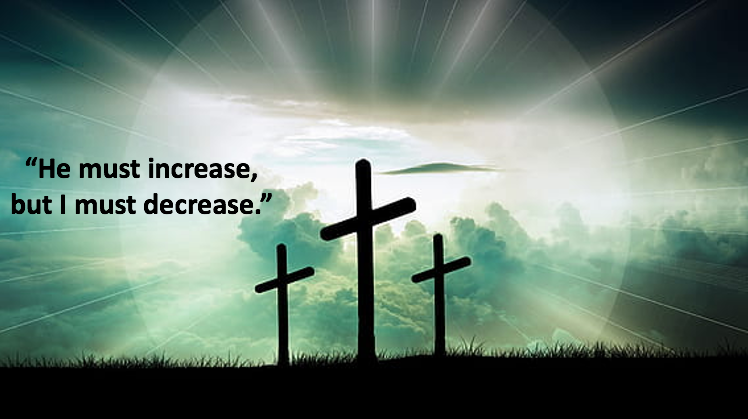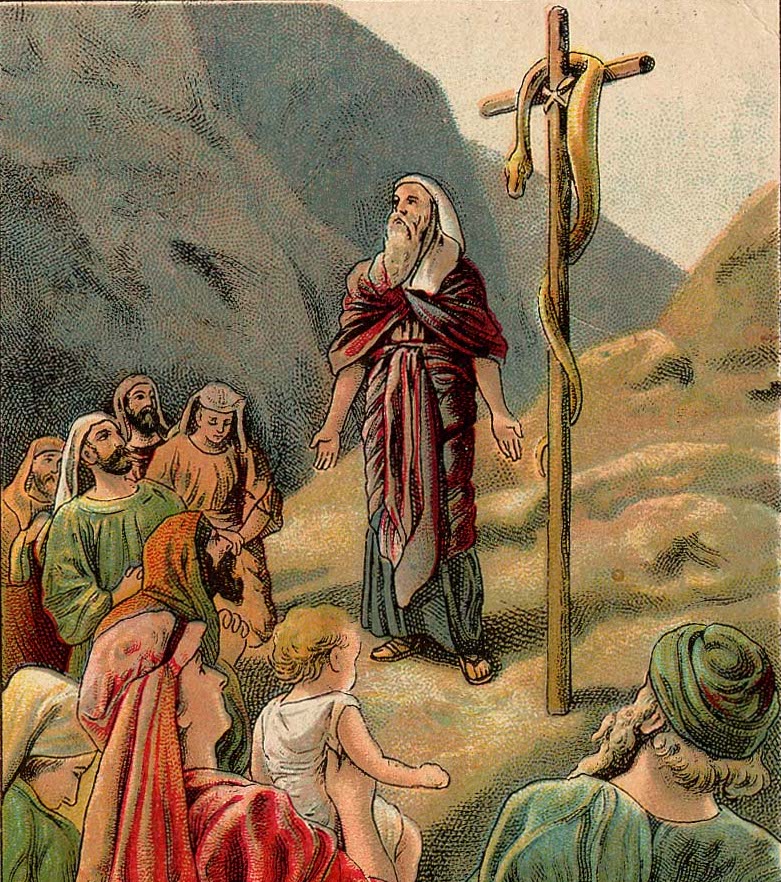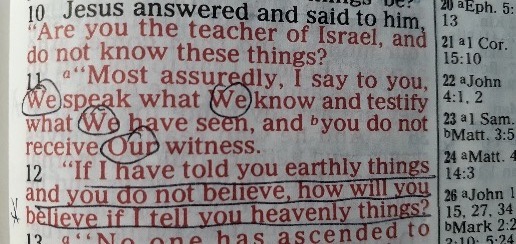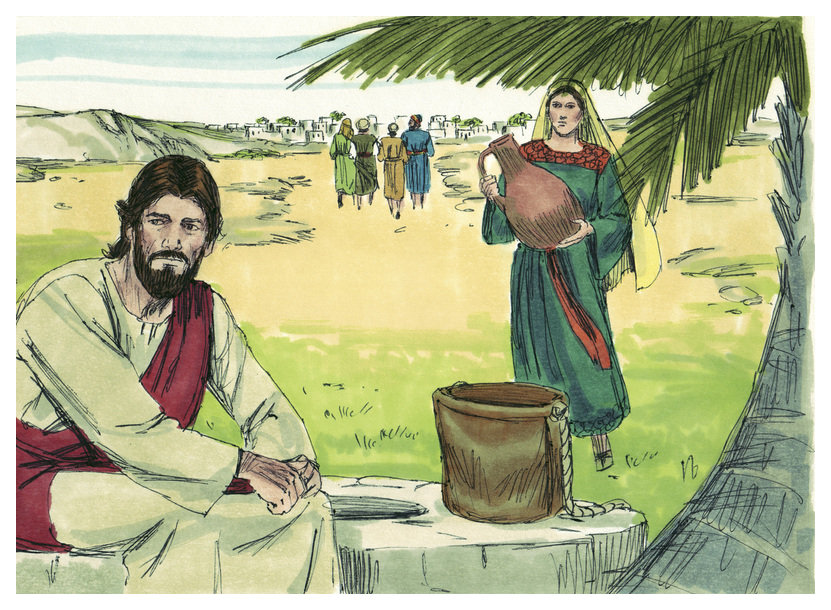Some students of the Bible do believe that water baptism is necessary for eternal salvation. They refer to six debatable verses to argue that one must be baptized with water in order to go to heaven. But this assertion clearly contradicts the New Testament teaching that salvation is by grace through faith alone in Christ alone. For example, if water baptism is necessary to obtain eternal life, why didn’t Jesus say, “He who believes in Me [and is baptized] has eternal life” in John 6:47? Why didn’t Luke write, “[Be baptized and] believe on the Lord Jesus Christ, and you will be saved” in Acts 16:31? Why didn’t the apostle Paul say, “For by grace you have been saved through [baptism and] faith” in Ephesians 2:8? If water baptism is necessary for salvation, why did the apostle Paul say that preaching the gospel was more important than water baptism when he wrote, “For Christ did not send me to baptize, but to preach the gospel” (I Corinthians 1:17)? Paul makes it clear that water baptism is not part of the gospel message. Paul did not baptize many people because water baptism is not necessary for salvation from hell (cf. I Corinthians 1:14-16).
Obviously God did not intend for us to let six unclear verses interpret the over 200 clear verses that teach that salvation is by faith alone in Christ alone (cf. Matthew 18:6; 21:32; Mark 1:15; 9:42; 15:32; Luke 8:12-13; John 1:7, 12; 3:15-16, 18, 36; 4:10-14; 5:24; 6:29, 30, 35, 40, 47; 11:25-26; 20:31; Acts 16:31; Romans 4:5; Galatians 2:16; Ephesians 2:8-9; I John 5:1, 13; et. al). So if these six verses are not referring to salvation from hell, then to what are they referring?
– “John came baptizing in the wilderness and preaching a baptism of repentance for the remission of sins.” Mark 1:4
John
the Baptist’s call to repentance was a call for the nation of Israel to change
their mind about their sin and the Person of Jesus Christ. The word “repentance”
is from the Greek word metanoia,
a compound word from meta, “after,” and nóēma, “thought.” Together
it means to an after thought or a change of mind. John was calling the nation
of Israel to change its mind because the Messiah God was coming from heaven to
set up His Kingdom. John says they need to repent and change their mind about
their own condition and/or the coming Messiah so they can trust in Him as their
Savior and He will set up His kingdom. This was a self-righteous nation that
needed to recognize its own sinfulness and need for a Savior.
John the Baptist’s baptism had no saving value. It was
designed to prepare the Jewish people to place their faith in the coming
Messiah according to Acts 19:4: “Then Paul said, ‘John indeed
baptized with a baptism of repentance, saying to the people that they should
believe on Him who would come after him, that is, on Christ Jesus.’” Those
Jews who were baptized by John realized their own sinfulness and inability to
save themselves. John’s baptism initiated them into the community of people who
anticipated the coming Messiah, Who alone could save them from their sins.
– “He who believes and is baptized will be saved;
but he who does not believe will be condemned.” Mark 16:16
Water baptism in Mark 16:16 cannot refer to
salvation from hell because this would contradict over 200 clear verses in the
New Testament which teach that salvation is by faith alone in Christ alone (cf.
Matthew 18:6; 21:32; Mark 1:15; 9:42; 15:32; Luke 8:12-13; John 1:7, 12;
3:15-16, 18, 36; 5:24; 6:29, 30, 35, 40, 47; 11:25-26; 20:31; Acts 16:31;
Romans 4:5; Galatians 2:16; Ephesians 2:8-9; I John 5:1, 13; et. al). God’s
Word will not contradict Itself.
Jesus used the word “believe” three times in
Mark 16:15-17. Notice that failure to believe results in condemnation, not
failure to be baptized which is consistent with John 3:18. If water baptism is
necessary for salvation, we would expect the Lord to have said, “He who does
not believe [and is not baptized] will be condemned.” But He does
not say this because water baptism is not a condition for salvation from hell. What
this means is even if a person is baptized with water but does not believe the
gospel, he or she will still be condemned to hell. Clearly, the only condition
for condemnation is failure to believe, not failure to be baptized with water.
It is better to understand the word “baptized” as a reference to Spirit baptism which takes place the moment a person believes in Christ for the gift of salvation (Acts 10:43-48; 15:7-8; 19:5; Galatians 3:2, 26-27; Ephesians 1:13-14). In Mark 1:8, John the Baptist said, “I indeed baptized you with water, but He will baptize you with the Holy Spirit.”
This is supported further in the context of Mark 16:16. Christ said “these signs will follow those who believe” and then He lists the miraculous signs that will accompany the preaching of the gospel to “confirm” the message (Mark 16:17-20) and the apostolic messenger (2 Cor. 12:12). These miraculous signs accompanied the baptism of the Holy Spirit in the early church (Acts 2:1ff). The baptism of the Holy Spirit is a spiritual baptism. It places believers into the body of Christ forever and joins them spiritually to the death, burial, and resurrection of Christ the moment they believe the gospel (Mark 1:8; Acts 10:43-48; 15:7-8; 19:5; Romans 6:3-4; I Corinthians 12:13; Galatians 3:2, 26-27; Ephesians 1:13-14; 2 Tim. 2:11, 13). Water baptism is necessary for discipleship (Matthew 28:19-20), but not for salvation.
– “Jesus answered, ‘Most assuredly, I say to you,
unless one is born of water and the Spirit, he cannot enter the kingdom of
God.’ ” John 3:5
When Jesus refers to being “born of water” He is speaking of physical birth. Christ explains this in the next verse. “That which is born of the flesh is flesh, and that which is born of the Spirit is spirit” (John 3:6). Christ is saying that a person must first be born physically before he can be born spiritually. So to be “born of water” refers to the amniotic fluid which breaks when a baby is delivered. To be “born of the Spirit” refers to our spiritual birth into God’s family the moment we believe in Christ (John 3:15-16; cf. John 1:12). The Bible does not contradict itself. John makes it clear that the only condition for eternal life is belief in Christ (John 3:15-16, 36; 4:10-14; 5:24; 6:35-40, 47; 7:37-39; 11:25-27; 20:31). The clear must always interpret the unclear.
– “Repent, and let every one of you be baptized in the name of Jesus
Christ for the remission of sins; and you shall receive the gift of the Holy
Spirit.” Acts 2:38
After preaching Jesus’ death and resurrection to his Jewish
audience in Jerusalem (Acts 2:22-35), the apostle Peter informed them “that God has
made this Jesus, whom” they “crucified,
both Lord and Christ” (2:36). When these Jews felt sorrow
or regret about what they did to their “Lord and Christ,” they
asked Peter and the other apostles, “What shall we do?” (2:37). Peter told them
to “Repent” (metanoeō)
or change their mind about their wrong view of Jesus and then believe in Him
for salvation from Hell (2:38a). By calling the people to repent, Peter was
commanding them to trust the One whom they had crucified (cf. John 11:25-26;
20:31; I John 5:1). Acts 2:41, 44 confirm this understanding when they say the
people “received
his word” (2:41) and “all who believed were
together” (2:44).
Acts 3:19-4:4 also supports this usage of the verb “repent.” After
Peter and John healed the lame man (3:1-10), Peter preached the death and
resurrection of Christ to his Jewish audience (3:11-18) and invites his
audience to “repent” or change their view of Christ and
see that He is the Messiah. His Jewish audience was thinking, “If Jesus is
the Messiah, then where is His Messianic Kingdom?” Peter
explains that if they would “repent” and believe in Jesus as the Messiah,
His Messianic Kingdom would commence (3:19-26; cf. Mark 1:15). How did these
Jews respond? “Many of those who heard the word believed” (Acts
4:4).
Several factors must be taken into consideration to properly understand
Acts 2:38:
1. Throughout the book of Acts we see that salvation
is byfaith alone in Christ alone as taught by Philip
(8:12, 37), Peter (10:43; 15:7-11), and Paul (13:39, 48; 14:27; 15:1-2;
16:30-31). God’s Word does not contradict itself, so Acts 2:38 must be talking
about something more than salvation from hell.
2. The distinction between regeneration and
forgiveness. Regeneration is imparting the very life of God at
the moment of faith in Christ to the believer (John 1:12-13; I John 5:1). Therefore,
it is judicial and cannot be changed. Forgiveness, on the other hand, involves
the restoration of harmony between God and believers (Luke 6:37; 11:4; I John
1:9).
The Bible speaks of two types of forgiveness: Positional forgiveness involves the pardon of past, present and future sins at the moment of faith in Christ (Acts 10:43; Ephesians 1:7; Colossians 2:13-14). This is a one-time event and cannot be changed. Fellowship forgiveness involves closeness to God, and it can be lost and restored repeatedly throughout a Christian’s life (Luke 6:37; 11:4; I John 1:9). For example, when you are born into your earthly family you will always be your parents’ child no matter what (regeneration), but closeness with your parents can be broken by your disobedience and restored by confession and forgiveness (fellowship). The same is true in our relationship with God.
3. The meaning of
repent. The word “repent” (metanoeō) means “to change
one’s mind.” Whenever this word is used in a salvation context, it means “to change
your mind about whatever is keeping you from trusting Christ and then trust Him
to save you” (cf. Mark 1:15; Luke 24:47; Acts 17:30; Romans
2:4; 2 Peter 3:9).
4. The book of Acts is
dealing with a transitional time in God’s program. The birth
of the Church takes place in Acts 2. For a brief period of time after the birth
of the Church, people were not baptized by the Holy Spirit into the body of
Christ (I Corinthians 12:13) at the moment of faith in Christ. For example,
Samaritan believers (Acts 8:12-17), disciples of John the Baptist (Acts
19:2-6), and Saul (22:1-16) received the Holy Spirit after they were baptized with
water. But Cornelius and his family all received the Holy
Spirit at the moment of faith in Christ (Acts 10:43-48) which is the normative
experience for believers today (cf. Mark 1:8; Acts 10:43-48; 19:5; Romans 8:9;
I Corinthians 12:13; Galatians 3:2, 26-27; Ephesians 1:13-14). Why the
difference?
Palestinian Jews who had helped crucify Christ had to be
baptized to be placed in the Church and have fellowship with God. That is, in
order to
enter into closeness with Christ, they had to publicly identify with Him
through water baptism because they had earlier rejected
Christ publicly when they participated in His crucifixion. This is why Gentiles
in Acts 10:43-48, who had no part in Christ’s crucifixion, received the Holy
Spirit at the moment of faith in Christ and were baptized later.
So when we come to Acts 2:36-38, Peter says to his Jewish audience, “’36Therefore let all the house of Israel know assuredly that God has made this Jesus, whom you crucified, both Lord and Christ.’ 37Now when they heard this, they were cut to the heart, and said to Peter and the rest of the apostles, ‘Men and brethren, what shall we do?’” (2:36-37). Peter has just preached that Jesus, whom His Jewish audience had personally helped to crucify, was both Lord and Christ (2:22-26). Peter replies, “Repent, and let every one of you be baptized in the name of Jesus Christ for the remission of sins; and you shall receive the gift of the Holy Spirit” (Acts 2:38). By calling the people to repent, Peter was commanding them to trust the One whom they had crucified (cf. John 11:25-26; 20:31; I John 5:1). Acts 2:41, 44 confirm this understanding when they say the people “received his word” (2:41) and “all who believed were together” (2:44).
The forgiveness spoken of in Acts 2:38 is fellowship
forgiveness, just as we see in I John 1:9. For these Jews
guilty of crucifying the Messiah, they had to be baptized and receive
forgiveness for this sin of rejecting Christ in order to have fellowship with
God and receive the gift of the Holy Spirit. Without water
baptism they would still have eternal life because they believed in Jesus (Acts
2:41, 44; 4:4; cf. John 3:16; I John 5:1), but they
would not escape the temporal judgment coming upon their sinful generation for
crucifying the Messiah (Acts 2:40).
– “And now why are you waiting? Arise and be
baptized, and wash away your sins, calling on the name of the Lord.” Acts 22:16
This verse is parallel in thought to Acts 2:38. Saul
of Tarsus was saved on the road to Damascus, as seen in Galatians 1:11-12 where
Paul said he received his Gospel directly from the Lord Jesus and not
from any man. Paul must have been saved on the Road to Damascus because this is
where Jesus spoke directly to Paul (Acts 9:3-6). In the above verse, Ananias
commanded Saul to be baptized so that he might receive the forgiveness of his
sins or the same fellowship forgiveness seen in Acts 2:38 and I John 1:9. Paul
was regenerated on the road to Damascus, but received fellowship forgiveness
for persecuting Christ (Acts 9:4) when he was baptized three days later by
Ananias (Acts 22:16; 9:17).
This explains why Ananias called Saul, “Brother Saul,” (Acts 9:17; 22:13) and why he didn’t command him to believe in Christ. Saul already believed in Christ for eternal life on the road to Damascus. The demand to be baptized for forgiveness of sins was imposed upon Palestinians who had openly rejected Christ and is never directed toward Gentiles (Acts 8:36-38; 10:43-48; 16:31-33; 18:8). Therefore, these accounts in Acts 2 and 22 are the exception, not the norm.
–
There
is also an antitype which now saves us–baptism (not the removal of the filth
of the flesh, but the answer of a good conscience toward God), through the
resurrection of Jesus Christ.” 1 Peter 3:21
Before we can
properly understand this verse, we must look at the preceding verses: “18
For Christ also suffered once for sins, the just for the unjust, that He might
bring us to God, being put to death in the flesh but made alive by the Spirit, 19
by whom also He went and preached to the spirits in prison, 20 who
formerly were disobedient, when once the Divine longsuffering waited in the
days of Noah, while the ark was being prepared, in which a few, that is, eight
souls, were saved through water” (1 Peter 3:18-20). Christ took our place
and punishment when He died on the cross and was made alive by the Spirit (3:18).
Through the Holy Spirit, Christ preached through Noah to the unbelievers (“spirits”)
of Noah’s day (3:19-20).
Why refer to Noah in this context? Because Noah’s deliverance is a picture (“antitype”) of the kind of baptism mentioned in verse 21 – Spirit baptism. The water did not save Noah and his family. The ark saved them. Just as the waters of God’s judgment fell upon the ark and not Noah, so God’s eternal judgment fell upon Christ and not us (3:18). Furthermore, just as Noah and his family escaped God’s watery judgment by being placed in the ark, likewise Christians escape God’s eternal judgment by being placed in Christ through Spirit baptism the moment they believe in Jesus (Galatians 3:26-27). When Noah came out of the ark, he entered into a new life – a world that had been cleansed of sin. Likewise, Spirit baptism places us in a new relationship to Christ so we can experience a new kind of resurrection life (Romans 6:3-5).
Spirit
baptism not only saves us from Hell, but it also saves us from the power of
sin. Peter says that this baptism is not a physical cleansing (“the removal
of the filth of the flesh”), but a spiritual cleansing (“the answer of a
good conscience toward God”). Spirit baptism gives us a good conscience regarding
our past sin and guilt and enables us to live victoriously now in the power of
the resurrection.
Some people
will ask “What about infant baptism?” To make a disciple you need first
a person who has believed. Infants are not able to understand their need to
believe in Christ. Therefore, parents should wait until their child is old
enough to believe and understand the true meaning of baptism before he or she
is baptized.
Some churches
practice infant baptism as a means of committing the child to be reared in the
church under the influence of spiritual teachers (Pastors, Sunday School
teachers, etc.). This can be called a “baptism of confirmation” for
children. This ceremony is intended to be a covenant between the parents and
God on the behalf of the child. The parents promise to raise their child in the
faith until the child is old enough to make his own personal confession of
Christ. This custom began about 300 years after the Bible was completed. It is
not in the Bible. This is different from the baptism talked about in the
Bible which was only for those old enough to believe. Some churches do
provide Baby Dedications whereby the child is committed to the Lord and
the parents publicly confess their commitment to raise the child according to
the principles in the Bible.
Conclusion: Water
baptism is not a necessary for salvation or going to heaven.
Only believing in Jesus Christ who
died for our sins and rose from the dead is necessary to go heaven (cf.
John 3:15-16, 36; 4:10-14; 5:24; 6:40, 47; 11:25-26; 20:31; Acts 8:12, 37;
10:43; 15:7-11; 13:39, 48; 14:27; 15:1-2; 16:30-31; Romans 4:5; I Corinthians
15:1-6; Galatians 2:16; Ephesians 2:8-9; I Timothy 1:16; I John 5:1, 13).
However, water
baptism is a condition for discipleship (Matthew 28:19)
and is to be done as soon as possible after a person believes in Christ for His
gift of salvation (cf. Acts 2:41; 8:6-13, 36-38; 10:43-48; 16:31-33; 18:8).
When a believer is baptized with water, he is telling God and those who witness
his baptism, that he desires to follow Jesus as His disciple no matter what the
cost (cf. Matthew 10:16-39; 28:19-20; Luke
9:57-62; 14:25-33; John 8:31-32; 13:34-35; 15:1-8).

